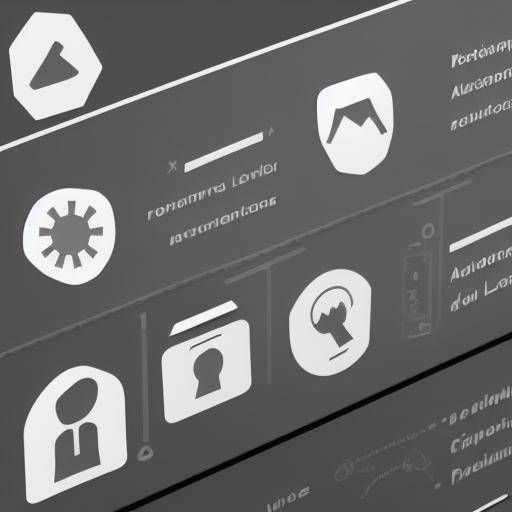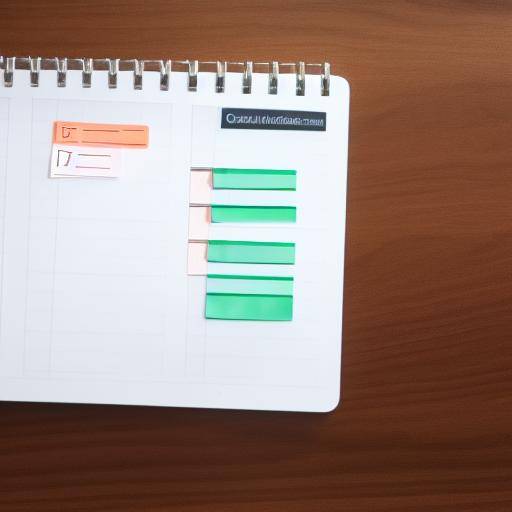
Fear of failure is a common emotion that can affect how people address challenges and opportunities in life. However, continuous self-assessment can be a powerful tool to overcome this fear, allowing people to identify areas of improvement and make adjustments that drive them to success. In this article, we will explore the importance of continuous self-assessment in overcoming fear of failure, as well as its relationship with continuous improvement in different aspects of life.
Introduction
Fear of failure is an emotional barrier that can prevent people from reaching their full potential. On the other hand, continuous self-evaluation provides an opportunity to reflect on past experiences, identify areas of improvement and develop strategies to overcome difficulties. By linking these concepts with continuous improvement, a picture is opened in which people can learn to use self-assessment as a tool to address the fear of failure and advance towards success.
In this article, we will explore the history and background of continuous self-evaluation, fear of failure and continuous improvement. We will also discuss how continuing self-assessment can help overcome the fear of failure by providing practical advice, industry insights, case studies and future predictions. In addition, we will address frequent questions on these topics to provide a complete understanding of their importance in personal and professional development.
History and Background
Continuous self-evaluation has its roots in the philosophy of personal and professional improvement. Throughout history, prominent figures in various fields have advocated the importance of constant reflection and analysis as tools for personal growth and success in business. From philosophers to business leaders, self-evaluation has been recognized as an essential practice for continuous improvement.
In exploring the fear of failure, it is crucial to understand how this emotion has evolved in different cultural and social contexts. From the psychological point of view to the impact on the labour sphere, the fear of failure has been subject to study and interest over the years. We will analyze how continuing self-evaluation has proven to be an effective tool to overcome this fear, allowing people to address the challenges with greater confidence and determination.
Detailed Analysis
In this section, we will emerge in a detailed analysis of the benefits and challenges of continuous self-evaluation in the context of fear of failure. We will explore real studies and examples that illustrate how self-assessment can lead to significant improvement in different areas of life. We will also address current trends in personal and professional development that highlight the importance of continuous self-evaluation.
Comprehensive review
The comprehensive review of continuous self-assessment will allow us to understand its practical application in real-world situations. Through the presentation of relevant best practices and case studies, we will illustrate how people can incorporate continuous self-assessment into their lives to overcome fear of failure and achieve personal and professional growth. By comparing different methods and approaches, readers will get a complete view of how continuous self-assessment can be used in different contexts.
Comparative analysis
In this section, we will perform a comparative analysis between continuous self-evaluation, fear of failure and continuous improvement. We will identify similarities, differences and possible synergies between these concepts, highlighting how continuing self-evaluation can influence the attitude towards failure and the constant search for personal and professional overcoming.
Practical Tips and Accessible Tips
Providing practical advice and actionable actions is crucial for readers to apply the concepts discussed in their daily lives. Some tips will include the importance of establishing clear goals, the practice of regular self-reflection, and the search for constant feedback to identify areas of improvement. We will also explore how to establish an action plan based on continuous self-assessment can help overcome the fear of failure and foster personal and professional improvement.
Industry Perspectives and Expert Reviews
The compilation of industry perspectives and expert opinions will allow us to present valuable insights on the importance of continuing self-assessment in overcoming fear of failure. By interviewing leaders in different fields, we will have the opportunity to highlight how the continuing self-assessment has influenced their path to success and how they can benefit others in their own ongoing improvement efforts.
Case Studies and Real Life Applications
Detailed case studies and practical applications of continuous self-assessment will allow us to illustrate how individuals and organizations have used this practice to overcome the fear of failure and promote continuous improvement. Through concrete examples, readers can understand how self-assessment can positively impact in different contexts and situations.
Future Trends and Predictions
Finally, we will explore future trends related to continuous self-assessment, fear of failure and continuous improvement. Based on current data analysis and expert opinions, we will present predictions on how these concepts will evolve in the future, as well as the possible challenges and opportunities that will arise in this field.
Conclusions and FAQs
In conclusion, we will recapitulate the main points of the article, emphasizing the importance of continuous self-evaluation in overcoming the fear of failure and the constant search for personal and professional improvement.
In addition, we will provide a Frequent Questions section that will address common doubts about continuous self-assessment, fear of failure and continuous improvement, offering detailed and insightful answers to provide a complete understanding of these issues.
With this article, we hope to provide readers with an exhaustive view of the importance of continuing self-assessment in overcoming fear of failure. By exploring the relationship between these concepts and their impact on everyday life, we seek to inspire people to adopt self-assessment as a powerful tool to face challenges, overcome fear of failure and achieve continuous success in their lives.






















